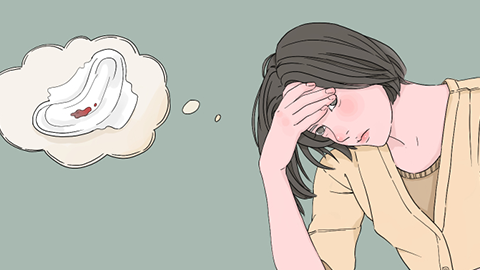What to do about uterine atrophy after menopause
Generally, postmenopausal uterine atrophy may be caused by factors such as ovarian function decline, aging, hormonal imbalances, endometritis, or ovarian insufficiency. Patients can follow medical advice to choose general treatments or medication therapy. A detailed analysis is as follows:
1. Ovarian Function Decline
After menopause, the ovaries stop secreting estrogen and progesterone, and the uterus, deprived of continuous hormonal nourishment, gradually develops thinner muscle layers and endometrial atrophy, eventually leading to a reduction in uterine size. In daily life, consuming more foods rich in phytoestrogens, such as soybeans and black beans, can provide gentle nutritional support to the body.
2. Aging
With increasing age, various organs in the body gradually age, and the uterine muscle tissue loses elasticity while connective tissue proliferates, naturally resulting in reduced uterine size and diminished function. A balanced diet rich in protein, such as lean meat and fish, along with fresh vegetables and fruits to supply vitamins, should be emphasized.

3. Hormonal Imbalance
Postmenopausal hormonal imbalance, particularly abnormally low estrogen levels, accelerates the process of uterine atrophy and may be accompanied by symptoms such as hot flashes and night sweats. It is important to monitor hormone levels under a doctor's guidance and, if necessary, follow medical advice for medication regulation, such as estradiol valerate tablets, conjugated estrogens tablets, or progesterone soft capsules.
4. Endometritis
Endometritis causes repeated damage to the endometrium, affecting the blood supply and nutrient absorption of the uterus. Against a background of postmenopausal hormonal deficiency, this can worsen uterine atrophy and may be accompanied by symptoms such as lower abdominal discomfort and increased vaginal discharge. Under medical guidance, anti-inflammatory drugs such as cefuroxime axetil tablets, metronidazole tablets, or clindamycin hydrochloride capsules should be used.
5. Ovarian Insufficiency
Patients with ovarian insufficiency already experience insufficient hormone secretion before menopause. After menopause, hormonal deficiency becomes more pronounced, causing the uterus to atrophy more rapidly due to long-term lack of hormonal support. Symptoms such as prolonged menstrual cycles may appear even before menopause. Under medical guidance, drug therapy such as KunTai capsules, estradiol cyproterone tablets, or nylestriol tablets may be used. Regular follow-up assessments of ovarian function and uterine size are necessary.
In daily life, maintaining good personal hygiene habits to prevent gynecological inflammation is important. Appropriate pelvic floor muscle exercises can strengthen pelvic organ support, and a light diet avoiding excessive spicy and irritating foods helps maintain balanced nutrition.






